
Findings from a phase 3 trial assessing nomacopan in patients with hematopoietic stem cell transplant–related thrombotic microangiopathy helped to support a rare pediatric designation from the FDA for the agent.

Your AI-Trained Oncology Knowledge Connection!


Findings from a phase 3 trial assessing nomacopan in patients with hematopoietic stem cell transplant–related thrombotic microangiopathy helped to support a rare pediatric designation from the FDA for the agent.

According to findings from a biomarker analysis of the phase 2 TheraP trial, mean standardized uptake value of PSMA-PET predicted favorable responses to 177Lu-PSMA-617 compared with cabazitaxel in patients with metastatic castration-resistant prostate cancer.

For patients with colon cancer, 3-month treatment with mFOLFOX6 or CAPOX improved safety outcomes without affecting efficacy vs 6-month treatment, according to data from the phase 3 ACHIEVE trial.
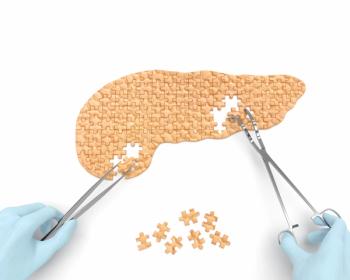
Patients with metastatic pancreatic ductal adenocarcinoma—the most common type of pancreatic cancer—may benefit from treatment with irinotecan liposome injection in combination with fluorouracil/leucovorin and oxaliplatin, according to findings from the phase 3 NAPOLI3 trial.

Based on results of the phase 3 EMPOWER-Lung3 trial, frontline use of cemiplimab plus chemotherapy has been approved by the FDA for patients with advanced non–small cell lung cancer.

In a new set of guidelines by the American Society for Radiation Oncology for the treatment of adjuvant endometrial cancer, experts noted that molecular characterization data should be considered when making recommendations.
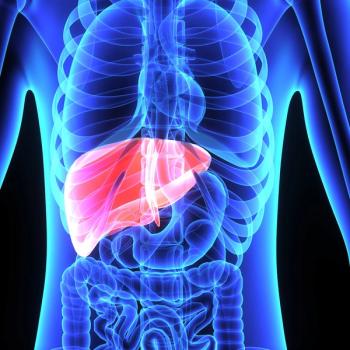
A regimen consisting of personalized therapeutic cancer vaccine, GNOS-PV02, as well as plasmid-encoded IL-12 and pembrolizumab yielded an overall response rate of 20.9% among evaluable patients with unresectable or metastatic hepatocellular carcinoma.

The investigational imaging agent 89ZR-DFO-girentuximab met all primary and secondary end points, exceeding pre-determined sensitivity and specificity targets in clear cell renal cell carcinoma, according to findings from the phase 3 ZIRCON study.

The primary end point of progression-free survival was not met in the phase 3 DREAMM-3 trial which investigated belantamab mafodotin in patients with relapsed/refractory multiple myeloma.

Findings from a randomized phase 3 trial indicated that brentuximab vedotin plus chemotherapy yielded a higher event-free survival rate and lowered the risk of death compared with chemotherapy alone among patients with advanced-stage Hodgkin Lymphoma.

Investigators indicated that patients with soft tissue sarcomas should be counseled on receiving moderately hypofractionated radiotherapy vs conventionally fractionated radiotherapy, especially if it results in care at a sarcoma specialty center.
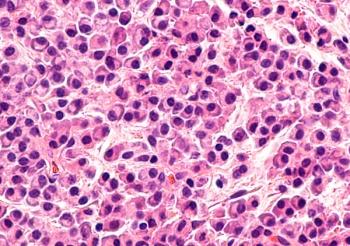
Higher neighborhood socioeconomic status improves long-term survival in patients with multiple myeloma regardless of overlapping disparities between racial and ethnic groups.

Patients with advanced solid tumors treated with milademetan experienced promising anti-tumor activity at the interim analysis for the phase 2 MANTRA-2 basket trial.

Findings from a secondary analysis highlighted an association between improved quality of life outcomes and longitudinal use of approach-oriented coping strategies in patients with acute myeloid leukemia.

Real-world results from the retrospective SCHOLAR-2 study provided a benchmark for survival in patients with relapsed or recurrent refractory mantle cell lymphoma who received salvage therapy following failure of initial Bruton tyrosine kinase inhibitor therapy.

Ghassan K. Abou-Alfa, MD, discusses the importance of improving access to novel therapies and combinations for patients with hepatocellular carcinoma across the world.

Opioid use disorder and overdose are important risks to consider in older patients diagnosed with stage II/III colorectal cancer, especially those who were opioid naïve.

A panel of experts in multiple myeloma discusses recent data updates from 2022 International Myeloma Society Annual Meeting and how it influences treatment strategies in clinical practice.

Atezolizumab plus R-CHOP appeared to yield durable clinical benefit and a safety profile consistent with known toxicities in patients with previously untreated DLBCL, according to data from a phase 1b/2 trial.
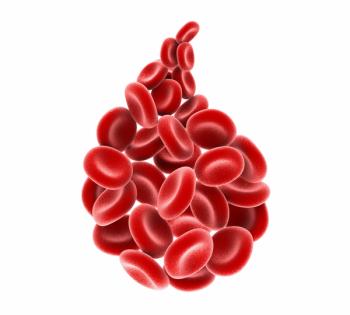
Patients with relapsed/refractory multiple myeloma may benefit from treatment with elranatamab, which was granted breakthrough therapy designation by the FDA.

At an Around the Practice program in Charlotte, NC, experts spoke about the most recent research in multiple myeloma.

Data from the phase 2 FIGHT study indicated that the monoclonal antibody bemarituzumab may be a promising treatment when combined with mFOLFOX6 for patients with advanced gastric or gastro-esophageal junction adenocarcinoma.

Initial findings from a phase 2 trial showed trilaciclib given before sacituzumab govitecan-hziy lessened the severity of adverse effects in patients with unresectable locally advanced or metastatic triple-negative breast cancer.

Results from the phase 1 ARROS-1 trial showed NVL-520 may stop tumor growth and yielded response in brain metastases in patients with ROS1-positive non–small cell lung cancer and other solid tumors.

Members of the FDA’s Oncologic Drugs Advisory Committee indicated there isn’t enough evidence to definitively confirm the overall survival benefit of 131I-omburtamab in pediatric patients with central nervous system or leptomeningeal metastases stemming from neuroblastoma.

An abbreviated new drug application was granted approval by the FDA for leuprolide acetate injection for patients with advanced prostate cancer.
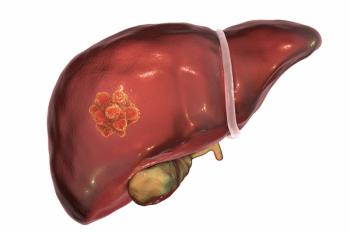
Patients with hepatocellular carcinoma may benefit from treatment with OTX-2002, a first-in-class epigenomic controller designed to downregulate c-Myc that recently received orphan drug designation from the FDA

Patients with histiocytic neoplasms can now receive treatment with cobimetinib following its approval by the FDA.
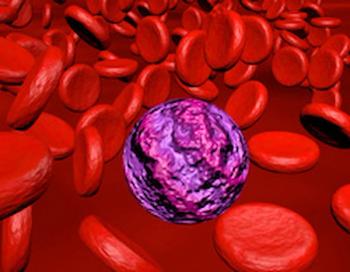
A conditioning regimen consisting of of Iomab-B prior to a bone marrow transplant met the phase 3 SIERRA trial’s primary end point of durable complete remission compared with conventional care in elderly patients with relapsed or refractory acute myeloid leukemia.

Among adult patients with low- or intermediate-risk myelodysplastic syndromes requiring red blood cell transfusions, luspatercept-aamt improved red blood cell transfusion independence with concurrent hemoglobin increase compared with epoetin alfa.